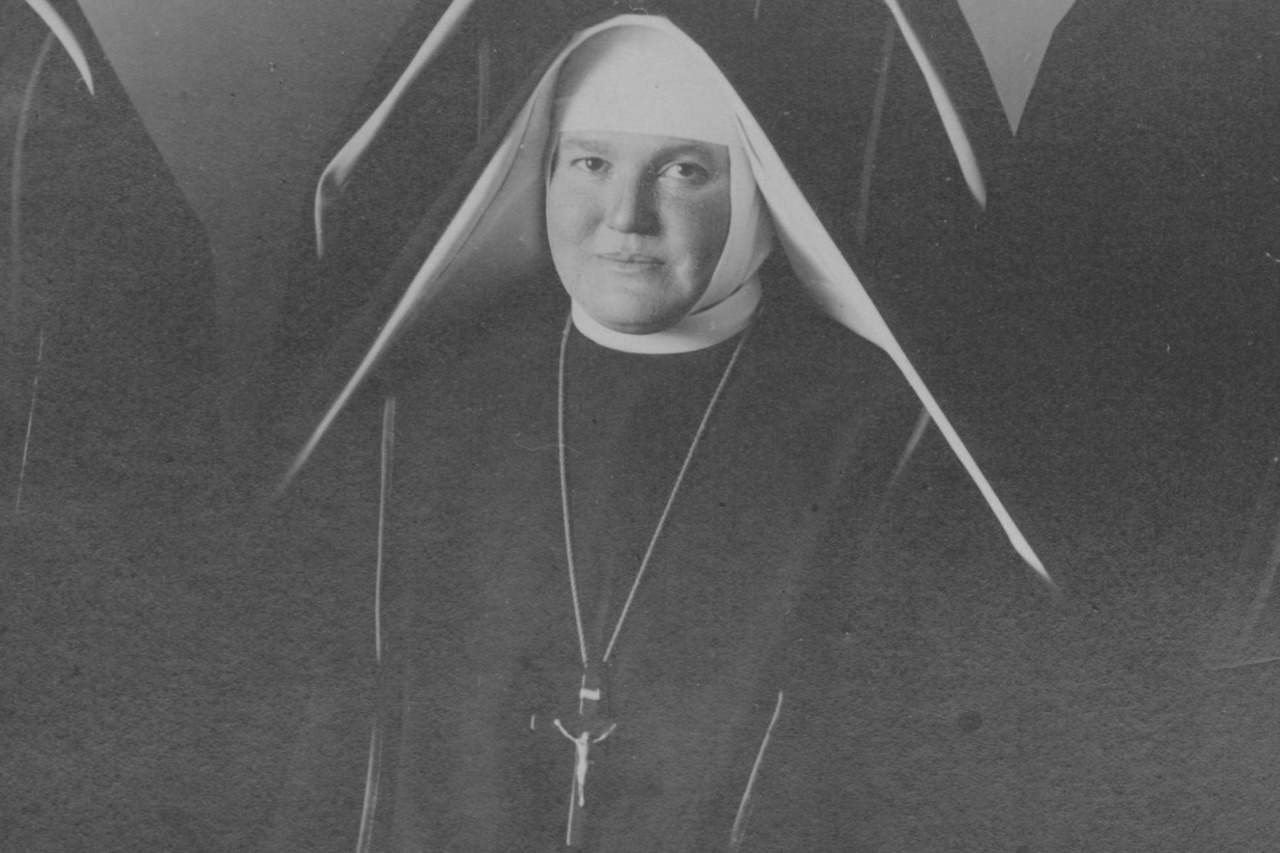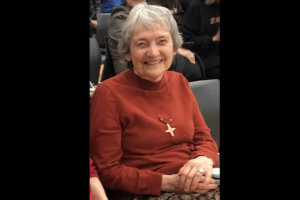In last month’s “history highlight”, (Wednesday May 3) writer Sr. M. de la St Trinité Goutelle, described the joy of the Sisters in Grande Clairière, when in early December 1898, four more Sisters arrived from France, on their way to start a new initiative at Lac Croche. This month’s history vignette, picks up the tale again in Grande Clairière, in the Sisters’ first winter, in the freezing cold.1
During the short holidays, following Christmas, we took advantage of the children’s absence to give the house a good cleaning. However, we could not think of washing the floor because the water would freeze immediately, and we would have a sheet of ice until spring, i.e., until March or April. We keenly felt the piercing cold; it was impossible to warm our feet unless we put them in the oven, but what was the use; we could not spend the day sitting near the stove.
This main piece of equipment gave us poor service, it inevitably refused to bake the bread which, as a result, was put on the table, half cooked, and moreover, was often as frozen as an icicle. Boiled potatoes became our chief food for breakfast. We prepared them the previous day, and for want of a better place, put them in the fireplace, which we vainly try to keep going all night. The next morning, we would usually find the potatoes still raw and framed in a block of ice that filled the pot. Though free time before class was limited, we did what we could; our meals during this whole season hardly ever knew the luxury of non-frozen or properly cooked food.
You will easily understand that our apartment could hardly be anything but an icebox. Very little heat could be given off from the short pipe from the stove. Whenever one of us wanted to write, she had to sit near this so-called stove, put the inkwell on top of it, first to melt the ink, and then to prevent it from freezing, as long as she was writing. Hoarfrost covered the walls and part of the floor.
One night, sister, Mary Magdalene, tired of shivering in her bed, got up quietly, and went to the classroom below to make a fire and warm up. There, too, the stove was poor, and perhaps the wood was not dry enough. Seeing that her efforts were useless, she had to return to her bed colder than ever, and offered to God the merits of her resignation.
On January 20, we received the news that Msgr Langevin, our archbishop, would soon visit us. We taught our pupils, a welcome song and an address for the occasion. On the 24th, Mr. Filteau, whose home was nearest the church, had the honour of meeting his Grace at the station in Findlay.
A violent blizzard had already begun; the horses blinded by the snow, could no longer follow the road. It was impossible to proceed without losing one’s way and going astray on the deserted plains, and probably freezing to death. Guided by their instinct, the horses stopped suddenly, and obstinately, refused to go forward; to his great regret, the driver was obliged to return home; so that night, when the venerable Prelate stepped off the train, there was no one there to meet him or drive him to Grande Clairière (which would have meant putting their lives in danger). He, therefore, had to spend the night at a hotel full of people. His host, a protestant, who did not know him, or who he was, asked him to share a bed with one of the borders since no other bed was available.
The following day, as it is usual, after a fierce winter storm, we had the most intense cold, in spite of a radiant sun, whose brilliant rays, far from softening, the immaculate blanket of snow, which covered the ground, only hardened it, and made it more dazzling.
As soon as it was possible, Mr. Filteau went to Findlay – this time to bring his Grace, who visited us immediately. All we could do was receive him in the corner of our dwelling, which served as a kitchen, because it was our best room on the first floor. At a favourable time our pupils offered him their greetings, good wishes and respectful homage. His Grace, with great solicitude, wished personally to take note of the details of our surrounding. He was interested in everything, our lodging, our little school, our pupils, etc. He seemed pleased with our humble beginnings, and was keenly impressed by our poverty, especially at the thought of the cold, which caused most of our suffering. During his short stay, as a good worthy pastor, he visited us several times in our new stable of Bethlehem. As we had no extraordinary confessor, he spontaneously offered to render this service himself. We, also, had the happiness of assisting at his mass. After giving us his blessing, and his paternal encouragement, he returned to Findlay en route for Saint Boniface, leaving us deeply grateful for the great kindness he had shown us.
For a further depiction of the Sisters’ struggle with cold in those first years, and their resolve in adapting, see this home-made-four-minute video:
1 For more about Grande Clairiere’s history, see the “Virtual Manitoba” site, at: http://www.virtualmanitoba.com/grassland/documents/images/GrandeClariereHistArticle.pdf
Veronica Dunne is a Sister of our Lady of the Missions (RNDM), who has primarily worked as an educator and counsellor in institutional and community based settings in Canada. She has also served with the RNDMs outside of Canada in Senegal, Peru, and Aotearoa New Zealand.
A 2002 Doctor of Ministry graduate from the University of St. Michael’s College, Toronto School of Theology at the University of Toronto, she subsequently served as director of the Doctor of Ministry program at St. Stephen’s College at the University of Alberta in Edmonton. Her current research interests are in eco-theology and cosmology, and their intersections with indigenous cosmologies and spiritualties.
She presently serves on the RNDM leadership team in Canada.





A deeply touching piece of RNDM history…